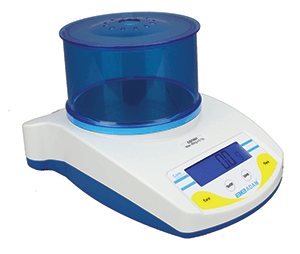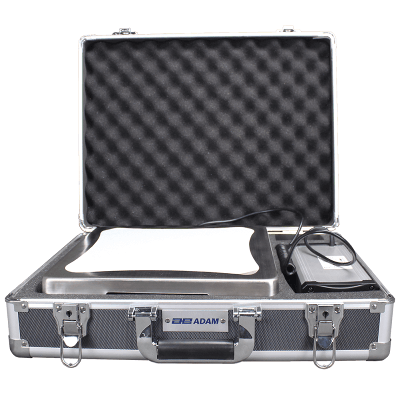
Compact weighing scales and balances are very common, as they tend to be inexpensive and can be used almost anywhere for general weighing in school science experiments and lab research to home baking and food portioning. In this post, we’ll explore the applications of compact scales and balances through various industries.
What is a compact scale?
Compact scale is often used as an umbrella term that incorporates other types of scale such as bathroom scales or cooking scales, however this can sometimes refer to more professional scales that are compact in size.
Some compact balances and scales offer simple operation and basic weighing, while others are highly precise and include several built-in functions. They’re lightweight, making them practical to transport, can be battery powered, and tend to be easy to clean as well. Compact weighing equipment is useful if you must use the same scale in multiple locations in one facility (for example, in various classrooms), in remote work areas where electricity is unavailable, and for trade shows, fairs, or farmer’s markets.

Types of Compact Balances and Scales
Balances like the CB or the Dune are relatively low-cost, easy to operate, and reliable. They’re ideal for teaching students how to use a digital balance. These balances are also a good choice for simple weighing tasks in offices, shipping facilities, field operations, veterinary offices, or industrial settings. Keep in mind these balances are limited to 0.1g readability and capacity to 5000g. They’re meant for quick, easy weighing on the go.
Core or Highland balances can handle precision weighing tasks and are quite useful for field sample weighing or cramped lab benches. These balances are sturdy enough to handle tasks in labs or field work, and to stand up to student curiosity in science classrooms. They include useful features such as a security slot, shock protection, and a hook for below-balance weighing and density determination.
Scales like the Astro are very easy to clean and have features that make them handy for cooking and catering applications such as measuring ingredients, batching, and portioning. Food scales are usually made of stainless steel rather than ABS to meet safety requirements, ensure they’re easy to clean, and to withstand various ingredients. They often have many multiple weighing units for added convenience. Overload protection is another useful feature for hectic kitchens.

The small CPWplus models can be used to weigh small animals at home or in a veterinarian’s office, stock in warehouses, or parcels in shipping departments. These scales are on the bigger end of the compact scales category, as large as some bench scales, but they have an indicator that can be mounted or put elsewhere to take full advantage of the weighing platform.
You can also use a compact scale like the LBX to perform counting and checkweighing tasks for small objects. They are right well-suited for small businesses, or when working with limited counter space or in the field. For exceptional portability, LBX scales include a rechargeable battery that can last up to 240 hours, and a USB connection that can be used to charge the scales. Despite its compact footprint, the LBX includes many features included in larger bench scales, such as an audible alarm for checkweighing applications.

How are compact scales and balances different from regular kitchen scales?
Compact balances and scale offer greater readabilities, weight capacities and improved weighing features over standard digital kitchen scales. They neatly fit into a mid-range category between recreational and professional, and so are a good choice if you need a reference tool for science experiments or when performing general weighing activities that require greater functionality than kitchen scales.
Should I get a carry case?
This depends on a few things. If your scale or balance was expensive and you often have to travel with it or transport it, then a carry case is ideal to protect your investment. If you often go for field experiments, then a carry case is worth it, while it might not be as useful if you just move the balance from lab to lab. Another thing to consider is the number of small components. Do you have an extra charger? Batteries on the side? Calibration weights or other equipment you use frequently in conjunction with the scale? If you do, it’s worth having a case to keep everything in the same place. Cases can also be locked.

Need help finding the best compact scale for you?
Take time and careful consideration when choosing your new weighing equipment. Many scales and balances are set up with multiple weighing modes, which makes them highly versatile, however it is still important to check the product specification against your requirements. As an example, a CB can be used in a warehouse or a kitchen, or even to weigh small animals. The best way to select a compact scale is to determine which features you need (if you weigh animals, for example, dynamic weighing or something easy to clean is important) and how much precision is necessary. If it’s for commercial retail purposes, you’ll need a trade approved device. If you need help picking a scale or a balance, please don’t hesitate to contact us. You can also use the handy product search function on our website to find the right equipment for your needs.

